The Kenya Bureau of Standards (KEBS) is facing new criticism over how it is handling the importation of Iranian bitumen, with industry players raising concerns about what they see as unfair treatment and regulatory sabotage.
At the center of the issue is a circular issued by KEBS in March, which stated that bitumen of Iranian grade 80/100 would no longer require pre-shipment inspection. Instead, the bitumen would be tested locally once it arrived in Kenya.
This move was seen as a shift in policy meant to ease import procedures for this specific product. However, when the ship MV NESHAT arrived at the Port of Mombasa on May 14 carrying Iranian bitumen grade 80/100, KEBS reportedly refused to carry out the promised local inspection.
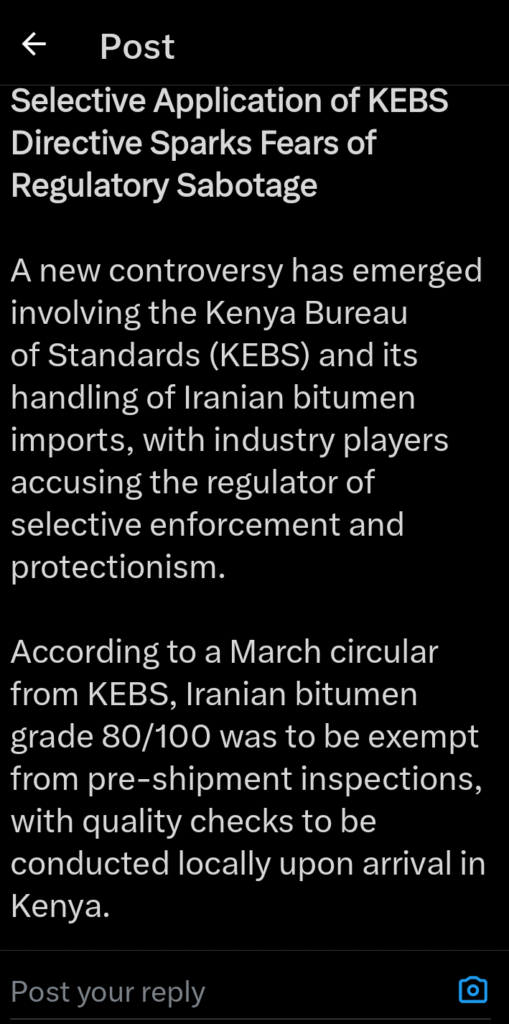
They claimed that Kenya did not have a testing standard for that particular grade of bitumen. This refusal has shocked many in the industry, as it goes against the earlier communication and seems to contradict the very exemption KEBS had issued.
What has caused even more alarm is that one importer, an Iranian national named Hussein of Bututec Limited, appears to have received special treatment. According to multiple sources, Hussein was allowed to import the same grade of bitumen without any inspection problems.
He owns a factory in Athi River, and his cargo has reportedly passed through without the same regulatory barriers placed on other importers. This has led to accusations that KEBS is not applying its rules fairly and may be favoring one importer at the expense of others.
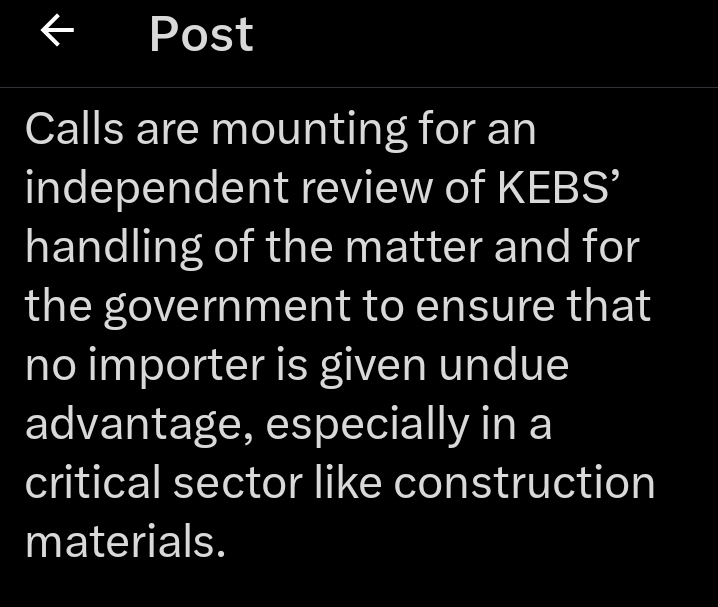
Industry stakeholders are now questioning why the standards are being applied inconsistently and why only one company seems to benefit from the relaxed rules.
There are fears that such actions by KEBS could harm the construction industry by limiting competition and creating an uneven playing field. Some believe that by blocking other importers, KEBS is giving one player a monopoly over a crucial product used in road construction and other infrastructure projects.
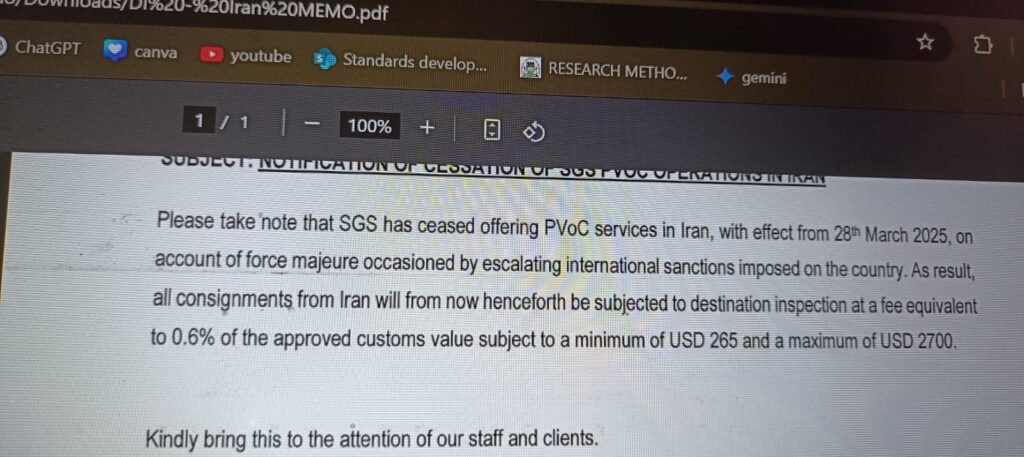
One frustrated importer who reached out to popular blogger Cyprian Nyakundi summed it up clearly. “Good evening Nyakundi. KEBS issued a circular in March stating Iranian bitumen 80/100 would no longer require pre-shipment inspection, with local inspection to be conducted in Kenya. But when MV NESHAT arrived on May 14, KEBS refused to inspect, claiming no testing standard exists for the grade, except for one importer, Hussein (Bututec), who owns a factory in Athi River. This move unfairly blocks other importers and risks killing competition. How is this fair?”
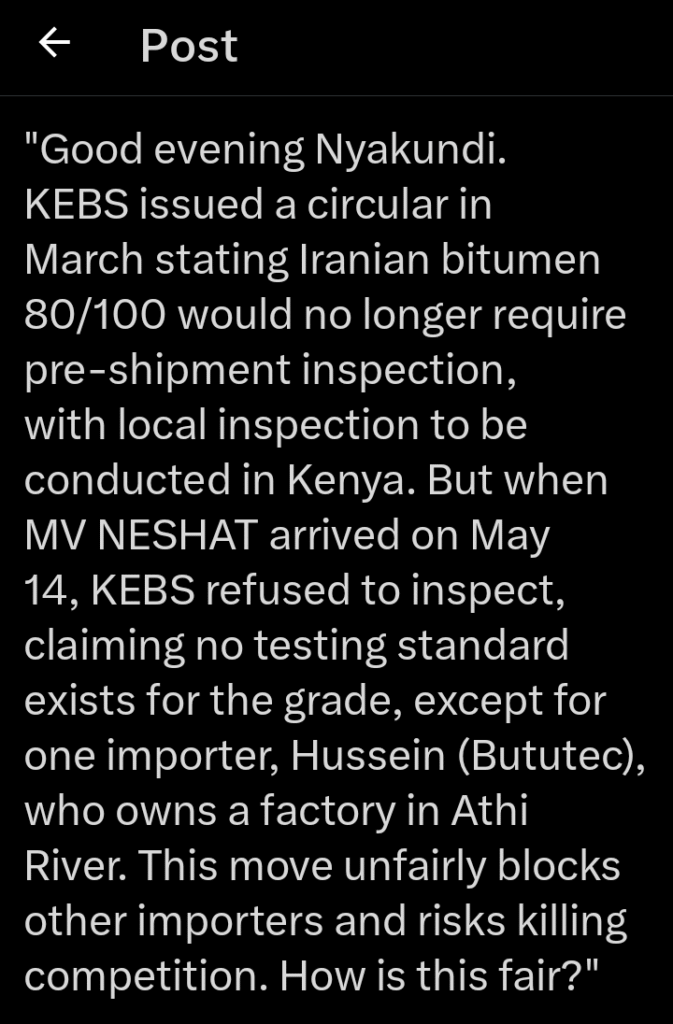
Many are now calling for an independent investigation into the conduct of KEBS and the decisions surrounding this bitumen import. They want the government to step in and ensure that all players in the market are treated equally.
With infrastructure being such a key part of Kenya’s growth, the last thing the country needs is a regulatory body that creates confusion and advantages a few. The credibility of KEBS is now on the line, and only a transparent and fair review can restore confidence among industry stakeholders.







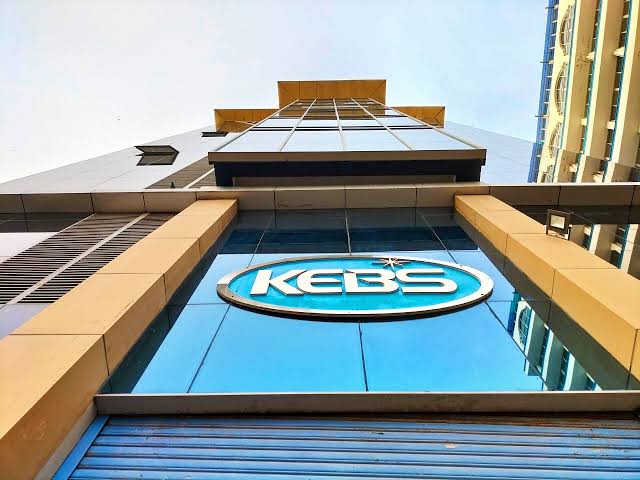













Add Comment